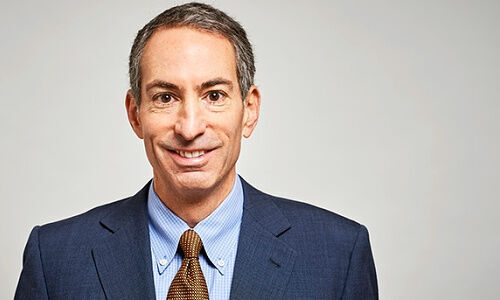David Solo has pulled it off again, selling a quantitative asset manager he co-founded between stints at UBS to industry giant Blackstone.
A Swiss quant start-up overseen by him was quietly folded into Credit Suisse after crashing during a market rout, but David Solo is having more joy about 10,000 kilometers away in San Francisco. He and partners are selling DCI, a quant boutique they co-founded, to Blackstone Group, a $600 billion industry titan, according to «Barron's» (behind paywall).
The West Coast asset manager's 24 employees oversee $7.5 billion in assets. Though neither the deal itself nor any financial details were publicly disclosed, it is safe to say Blackstone ponied up a three-digit million sum for DCI. The move illustrates that Solo, a 55-year-old American-Swiss who spent the bulk of his career in Zurich and London, remains very much in the game.
Clearing Wreckage
The boutique was more of a sideline for Solo, who co-founded DCI in 2004 with Stephen Kealhofer and Mac MacQuown shortly after clearing the wreckage from UBS’ private equity book. One year later, he was back in Zurich, helping UBS with the 2005 sale of three private banks and GAM to Julius Baer.
Solo, who ran GAM following the deal as well as and after the asset manager was spun out of Julius Baer in 2009, and his partners were at the forefront of quantitative strategies when DCI was founded. An MIT-trained computer scientist and electrical engineer, Solo was a partner at Chicago-based derivatives boutique O’Connor, which UBS snapped up in 1991.
UBS Patronage
O'Connor introduced Solo to UBS overseer Marcel Ospel, who would later become his patron (the two remained close until Ospel's death, as finews.com reported in July). Based in Chicago and given almost total independence from UBS to this day, O'Connor also spawned the career of Dawn Fitzpatrick, who now manages George Soros' $26 billion fortune.
Ospel made him operating chief of Warburg, then in 1998 risk chief, where Solo cleared the wreckage of UBS’ 950 million Swiss franc ($1.05 billion) LTCM foray. He also laid the groundwork for UBS' modern-day investment bank.
Writing Code
Undoubtedly, Solo is among the most brilliant thinkers of his generation in finance, but remains fascinated by the inner workings: at Simag, the Credit Suisse co-venture, he helped write code for an algorithm that fed its artificial intelligence-based strategy. While at MIT, Solo researched at two labs (one on machine-optimized search algorithms and one on a type of fiberoptic communications systems used in the military).
The aptitude for coding illustrates that Solo, who reportedly earned millions through the two-fold sale (first to Julius Baer, then to investors when it was listed), arguably remains more interested in the nitty-gritty of finance than in earning big money. To be sure, his tenure at GAM was mired in criticism of opaque pay schemes by influential U.S. proxy shareholder groups.
Fatal Greensill-GAM Ties
A father to two children and now based on the U.S. east coast, the reclusive Solo remains an advisor to Simag. Solo, who has never granted a media interview despite running a blue-chip firm for years, said goodbye at GAM in 2014, handing over to successor CEO Alex Friedman, also a former UBS banker.
His influence at GAM lasted through 2018, when a key bond fund blew up – Solo had introduced the portfolio manager at the center of the scandal, Tim Haywood, to controversial financier Lex Greensill. GAM is in the midst of a multi-year effort to get its products back into client portfolios following the scandal, top executive Daniel Durrer told finews.com last month.




































